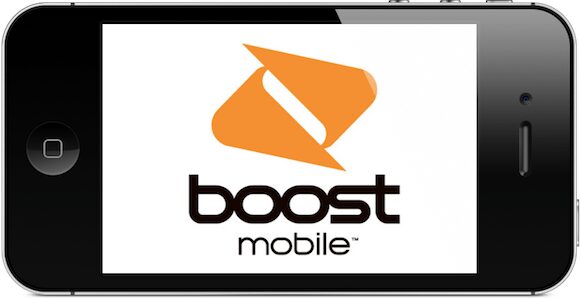Boost Mobile founder Peter Adderton has put in an offer to buy the mobile virtual network operator back from the New T-Mobile, which must divest Boost and Sprint’s other prepaid brands as part of required conditions to merge T-Mobile US with Sprint. However, Dish Network was the intended buyer, with plans to continue operating Boost as an MVNO on the New T-Mobile’s network while it built out its own 5G network.
Reuters reported that Adderton is willing to pay up to $2 billion for Boost. Dish was expected to buy the prepaid operations for about $1.4 billion, plus another $3.6 billion in spectrum purchases from New T-Mobile.
The divestiture, as laid out in the Sprint/T-Mobile US merger order of the FCC, includes Boost’s stores, employees and current subscribers, as well as a wholesale arrangement agreement “with rates and terms that ‘will ensure that New Boost will be an aggressive competitor.'” The New T-Mobile committed to reaching an agreement with a buyer for Boost within 120 days of the close of the merger transaction and to pay $3.5 million per day if they either didn’t meet that deadline, or if the divestiture didn’t meet with the approval of the FCC’s Wireless Telecom Bureau.
Adderton tweeted that his offer “puts Boost in the hands of people who know and understand the prepaid business” while allowing Dish “to focus on building a state of the [art] 5G network without the distraction of Boost”. Adderton added that he would “commit to employee/dealers” and is “happy to work with Dish to wholesale there [sic] new network and T-Mo.”
Our Bid today for Boost allow's @sprint shareholder's to get the true value of Boost, it put's Boost in the hands of people who know and understand the prepaid business, allow's Dish to focus on building a state of the are 5G network without the distraction of Boost everyone wins
— Peter Adderton (@peter_adderton) November 19, 2019
In addition to founding Boost, Adderton also ran the short-lived, premium MVNO Amp’d Mobile in the mid-2000s. He has long expressed concern about the impact that the merger of T-Mobile US and Sprint would have on the prepaid market, where T-Mo’s MetroPCS goes head-to-head with Boost, and how it would affect MVNOs’ ability to operate, given Sprint’s tradition of being more welcoming to flexible wholesale arrangements than the other three national wireless network operators.
But Dish’s acquisition of Boost isn’t just about the prepaid segment or Boost’s purchase price. Part of the deal outlined in the FCC’s order is the concept that the acquisition of Boost Mobile “will help Dish achieve” its expansion into being a facilities-based competitor with a 5G network, and the FCC said it would modify and extend Dish’s spectrum license terms contingent upon the company’s purchase of Boost. Dish has been up against a crunch in the build-out terms of its current spectrum licenses, facing the possibility of losing its licenses if it didn’t meet FCC deadlines that had been set for March 2020. The company has been working on a two-phase approach to build-out, starting with a narrowband IoT network that would meet the spring 2020 deadline and then outlining plans to start building out 5G.
“Should Dish acquire the Boost Mobile divestiture contemplated by those conditions, the public interest would further be served by extending and conditioning, and, subject to a final determination by WTB, as directed, modifying certain of its licenses,” the FCC’s order on Sprint and T-Mobile US said.
The Department of Justice, as part of its conditions on approval for the Sprint/T-Mobile US merger, set up conditions in which another facilities-based competitor — Dish — would enter the market through the divestitures that New T-Mobile would make. The DoJ indicated that it would not object to the merger of the two national carriers subject to conditions including the “divestiture to Dish of Sprint’s prepaid assets (Boost Mobile, Sprint-branded prepaid, and Virgin Mobile), and the [New T-Mobile] entering into an MVNO agreement with Dish for at least seven years.” The New T-Mobile is also required to “make available to Dish all of the cell sites it decommissions within five years (which shall be at least 20,000) and all of the retail locations it decommissions within five years (which shall be at least 400).”
The DoJ required Dish to build out a nationwide 5G network using its own AWS-4, lower 700 MHz and H Block licenses, and the New T-Mobile was also required to sell DISH its 800 MHz spectrum licenses within three years of selling DISH the prepaid business, and was required to “negotiate in good faith with DISH to lease DISH’s 600 MHz spectrum licenses and deploy the spectrum for use by retail customers.”
Adderton told Reuters that because the merger terms for the Sprint and T-Mobile US deal expired on November 1, the companies are re-negotiating, opening up a chance for him to make the offer for Boost. Much is in flux at this point, with T-Mobile US CEO John Legere announcing yesterday that he would be leaving his post as CEO in the spring — though he will remain a member of the board.
The Rural Wireless Association, which has been a vocal opponent of the merger of Sprint and T-Mobile US, released a statement this morning saying that because of Legere’s pending departure, its member companies “are genuinely worried that the promises Mr. Legere personally made to Congress — and provided in testimony — will fall by the wayside if T-Mobile and Sprint are allowed to merge.”

